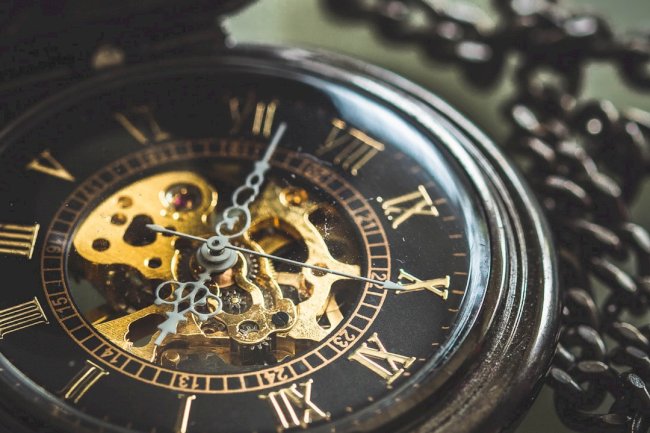ORISHA - What And Who Are They
A look into the belief system of the Yoruba people of Nigeria and other adopted people the world over.
According ording to the Yoruba (an indigenous people of Nigeria West Africa), the orisha are spirits as well as divinities sent by olodumare to earth (referred to as Ayé) to teach and enable them become successful and prosperous. Most of the orisha are said to have previously existed in the spirit world (òrún) as Irúnmọlẹ̀, and then become incarnated as human beings here on Earth. Others are said to be humans who are recognised as deities upon their death due to extraordinary feats and achievements accomplished in their life time.
The orisha belief system has found it's way to most part of the World as a result of the abolished Atlantic slave trade and are now seen in practices as varied as Santería, Candomblé, Trinidad Orisha, Umbanda, and Oyotunji, among others. The concept of orisha is similar to those of deities in the traditional religions of the Bini people of Edo State in southern Nigeria, the Ewe people of Benin, Ghana, and Togo, and the Fon people of Benin.
THE BELIEF SYSTEM
Orisha practitioners believe that day to day life depends on correct alignment and knowledge of one's Orí (head), but in spiritual matters, it is taken to mean a part of the soul that determines personal destiny. Some orisha adherants are rooted in ancestor worship; warriors, kings, and founders of cities, who were celebrated after death and joined the pantheon of Yoruba deities. According to their believe, "the ancestors did not die, but were seen to have "disappeared" and become orisha". Some orishas based on historical figures are confined to worship in their families or towns of origin; others are venerated across wider geographic areas.
A prevalent theme of the orisha is Ashe, which is said to be the life - force that runs through all things, living and inanimate. It is described as the power to make things happen. It is an affirmation used in greetings and prayers, as well as a concept of spiritual growth. Orìṣà devotees strive to obtain Ashe through iwa-pele, gentle and good character, and in turn they experience proper alignment with the ori, what others might seemiling call inner peace and satisfaction with life. Ashe is divine energy that comes from Olodumare, the creator deity, and is manifested through Olorun, who rules the heavens and is associated with the sun. Without the sun, no life could exist, just as life cannot exist without some degree of ashe. Ashe is sometimes associated with Eshu, the messenger orisha. For adherents, ashe represents a link to the eternal presence of the supreme deity, the orishas, and the ancestors.
HOW MANY ARE THEY?
Yoruba oral tradition often estimates that there are 400 + 1 orisha, the 1 being associated with a sacred number. Other sources and writtings suggest that the number is "as many as you can think of, plus one more, an innumerable number". The orisha in reality cannot be counted, as it's a polysthetic religion, so they can be quite in their numbers.
PANTHEON OF THE ORISHA
The orisha are classified into two distinct categories, those represented by the color white, characterised as tutu "cool, calm, gentle, and temperate"; and those represented by the colors red or black, who are characterized as gbigbona "bold, strong, assertive, and easily annoyed". As do humans, the orisha may have a preferred color, food, or object. The traits and likes of the orisha are documented through oral tradition passed down from generations.
A look cannot be taken into the while pantheon of the orisha, but here we take a look at the most prominent of the orisha:
SANGO
He is the “god of Thunder and Lightning.” He is also called Jakuta and is one of the most worshipped orisha in the world today. He was the third king of Old Oyo Kingdom Nigeria. His statues usually capture him wielding a two-edged axe. He is also one of the greatest warriors in mythologies. He is worshipped on the fifth day of the week (Friday). The Bata dance is performed during his festivals and people who worship him do so in red attires which is believed to be what he wears. Sango was a vengeful conqueror whose seven years at the head of the kingdom was marked by constant warfare and conquest until his palace was alledgedly struck by lightning and killed in the process. He is known as the God of Iron who casts down thunderstones to smite those that displease him with lightning, and stones formed by lightning strikes are sacred to his followers. He, as befitting a warrior, is represented by his two axes, the thunder of both sky and drum.
OGUN
Ogun is the Yoruba “god of war and iron.”, known as being also a warrior. He is cited as the first Orisha to descend on earth, according to oral traditions he took the form of a hunter named Tobe Ode. He is also the first king of Ife, which in the Yoruba cosmology is where life started. He is usually worshipped by warriors, hunters, blacksmiths, technologists and drivers who believe in the old gods. His symbols are metal, dog and palm frond.
ORUNMILA
Orunmila is another influential Orisha. He is the “god of wisdom, knowledge and divination.” It is said that he was there at the beginning during the creation of the universe. The Yorubas’ say he once used to take human forms and visit the earth as a priest and teach priests a very highly spiritual religion called Ifa. The Ifa has 256 books as part of the core of worship called Odu. The Odu Ifa is an oral book exclusive to the priest of the religion and is passed down from generation to generation. It is the encyclopaedia of life and the human race. Orunmila gives an insight into the future to his worshippers as visions to guide their actions. Ifa priests are abound today, with orunmila their go to god.
AYE
Aye is the Yoruba version of Mother Earth. More than simply being the planet on which we all tread, Aye is the force of creation given life. More than just a mother figure, she is a creator figure; a Yoruba saying goes “You have Aye; I have Aye; we all have Aye in our pockets". She is power. Specifically, the power of the Black woman. Gestating life, creating a work of art, building a town, organizing a revolution. All of these things fall under the purview of Aye, because she is the great creative force without whom the Earth would have never existed; it is said, the male Orisha attempted to leave women out of the creation process and failed miserably until Oshun agreed to participate and Aye was born. As such, it is the labor of many working together who tap into Aye’s great power, a collective greater good in which displays of wealth are forbidden and sharing is not encouraged, but required. "If you have ever known a kindly older woman who could cure a cold by administering a hot drink and applying salve, you have known one of Aye’s iyalawo (mothers of mysteries)". - so it is said.
OBATALA
Obatala is believed to be the creator of the human race. He is the father of all Orishas. Until one is initiated into the worship of the Orishas’, it is believed that obatala is their god. He also walked the face of the earth in a mortal body and served as the king of Ife. It is said, he was usurped from the throne by his brother on a drunken night.
OLODUMARE
Regarded as the most powerful god according to Yoruba mythology. He is the “supreme God.” He is omnipotent and is the one who breathes life into the creations of his son Obatala. He is the creator also of the other gods and powers in the universe. Historically, the Yorubas do not worship him directly: He is called on if the other Orishas do not hear the calls of their worshippers. Many times he is interchanged as the god referred to by Christian belief system but he isn’t. He is a different entity all together.
Believe and worship of the orisha has now become wide spread, for the yorubas and other adherents it's a belief system rooted in the creation of all life, and as other belief systems across the world they believe theirs is the original and first.
What's Your Reaction?


























